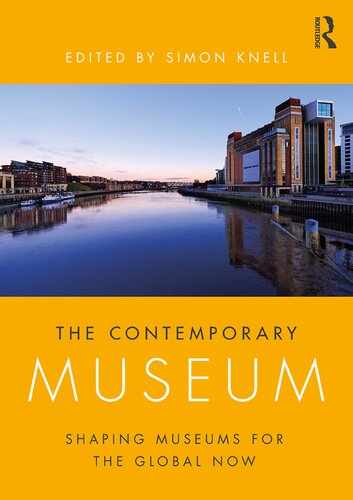

Most ebook files are in PDF format, so you can easily read them using various software such as Foxit Reader or directly on the Google Chrome browser.
Some ebook files are released by publishers in other formats such as .awz, .mobi, .epub, .fb2, etc. You may need to install specific software to read these formats on mobile/PC, such as Calibre.
Please read the tutorial at this link: https://ebookbell.com/faq
We offer FREE conversion to the popular formats you request; however, this may take some time. Therefore, right after payment, please email us, and we will try to provide the service as quickly as possible.
For some exceptional file formats or broken links (if any), please refrain from opening any disputes. Instead, email us first, and we will try to assist within a maximum of 6 hours.
EbookBell Team

4.1
20 reviewsThe Contemporary Museum issues a challenge to those who view the museum as an artefact of history, constrained in its outlook as much by professional, institutional and disciplinary creed, as by the collections it accumulated in the distant past. Denying that the museum can locate its purpose in the pursuit of tradition or in idealistic speculation about the future, the book asserts that this can only be found through an ongoing and proactive negotiation with the present: the contemporary.
This volume is not concerned with any present, but with the peculiar circumstances of what it refers to as the ‘global contemporary’ – the sense of living in a globally connected world that is preoccupied with the contemporary. To situate the museum in this world of real and immediate need and action, beyond the reach of history, the book argues, is to empower it to challenge existing dogmas and inequalities and sweep aside old hierarchies. As a result, fundamental questions need to be asked about such things as the museum’s relationship to global time and space, to systems and technologies of knowing, to ‘the life well lived’, to the movement and rights of people, and to the psychology, permanence and organisation of culture.
Incorporating diverse viewpoints from around the world, The Contemporary Museum is a follow-up volume to Museum Revolutions and, as such, should be essential reading for students in the fields of museum and heritage studies, cultural studies, communication and media studies, art history and social policy. Academics and museum professionals will also find this book a source of inspiration.